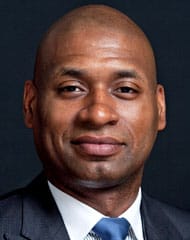Making Visible A Decade of Lost Children

According to “The State of America’s Children 2011,” a report issued last month by the Children’s Defense Fund, the impact of the recession on children’s well-being has been catastrophic. Here is just a handful of the findings:
• The number of children living in poverty has increased by four million since 2000, and the number of children who fell into poverty between 2008 and 2009 was the largest single-year increase ever recorded.
• The number of homeless children in public schools increased 41 percent between the 2006-7 and 2008-9 school years.
• In 2009, an average of 15.6 million children received food stamps monthly, a 65 percent increase over 10 years.
• A majority of children in all racial groups and 79 percent or more of black and Hispanic children in public schools cannot read or do math at grade level in the fourth, eighth or 12th grades.
Blow’s conclusion: “We risk the creation of an engorged generational underclass born of a culture that has less income equality and fewer prospects for mobility than the previous generation. It’s hard to see how we emerge from this downturn and its tumult a stronger nation if we allow vast swatches of our children to be lost. My fear is that we may not.”
After posting the story Blow tweeted ML Kings ‘promised land’ speech. The video ends quoting King suggesting that we we account to the god of history “and we will talk in terms of things we done it seems that I can hear the god of history say that it was not enough”








Ed Jones
A caution about these statistics: Food Benefits push equilibrium wages down.
Think about it. If you have two children and you apply for a newly created service job, and the entrepreneur says, 'we'd like to pay you $8 an hour', does your response depend on your ability to receive food aid? Of course it does.
Without food aid you'd plead with the business owner, "How am I supposed to feed my children?" And statistically, across the nation and over time, wages would adjust so you could indeed feed your children.
Instead, over time, government has said to business owners, "We will cover much of your labor costs. You don't need to worry about paying a living wage, we will do it for you." Thus for the employers of millions of heads-of-households, the taxpayers do just that.
Helping the indigent and temporarily-in-need is a Judeo-Christian-Muslim duty, and well we should all so do. Yet we need to be mindful of macro-economic consequences of government aid at large scale.
Income inequality has much of its origins in this employer subsidy, as well as with the minimum wage law. For decades the government has determined outside the market process the value of an entry level/low skill worker. The Feds have posted this price in every breakroom and job-site across the nation. 'A laborer is worth $5.15/hour. For the tenth year in a row. GDP growth of 6 percent be damned.'
I just ate a sandwich from McDonalds for $1, as I have for 15 years or better. Why has this price not increased while the cost of a movie or book has doubled? Government suppression of the economics of low income: food benefits and minimum wage laws. Government dictates McDonalds labor costs outside the market, then subsidizes the difference all along.
These two laws and many more let business shift their real costs onto the future taxpayer, the same children we talk of here.